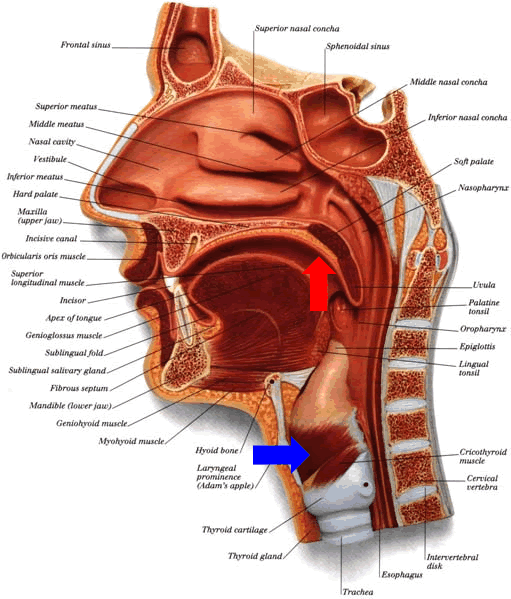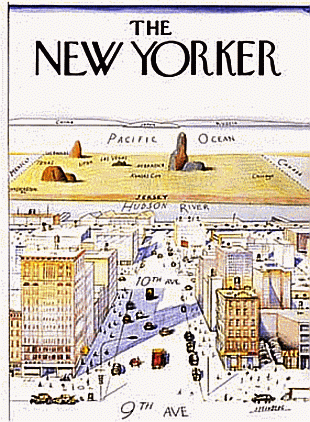March 14, 2005
Somewhere back of the teeth in Glasgow
Another story about language, another case of attributional abduction.
Actually, there are two stories, one by Fiona MacGregor in The Scotsman, and another by Gerard Seenan in the Guardian (based on MacGregor's piece, apparently). Both are about Jim Scobbie's research on sound change in progress in Glasgow. The stories both put forward an interesting research question, and discuss an on-going research project that has turned up new evidence. However, both stories also quote the featured scientist as saying some things that don't quite make sense. In this case, as we've often had occasion to suggest before, it's a good bet to attribute the mistake to the journalists.
The two stories discuss changes in Glaswegian pronunciation that apparently bring it closer to Home Counties standards, and especially the loss of trilled /r/ in some contexts.
Residents of Maryhill, an area of Glasgow perceived to have a "strong" accent, are now dropping the consonant altogether at the end of words with words such as ‘car’ and ‘bar’ are changing in pronunciation to ‘cah’ and ‘bah’.
However, contrary to claims that English television programmes are influencing the way Scots speak, Scobbie believes the dropping of the final R is a natural development.
"To the casual listener it may sound like the R has been dropped completely as it is in England, but when you look at the ultrasound images you can see the tongue starts to shape an R before the sound trails off."
He said if it was a case of merely copying English pronunciation there would be no evidence of the R at all. And he claimed that within Glasgow there were also differences with the dropped R more common in Maryhill than Bearsden.
"There’s a natural tendency in all languages for consonants to become weaker at the end of the word than at the beginning. So you might still get the burred R at the start of word even if people are losing the final R. [from the article in The Scotsman]
So far, so good.
In fact, it's terrific to see questions like these discussed in the popular press. The basic facts are clear and easy for everyone to understand at an elementary level, people are interested in what's happening, and there are some fundamental issues in play. For example, this is the latest in a lengthening series of examples where "loss" of a phoneme has been shown to be the result of weakening a speech gesture to the point where it no longer has its normal acoustic effect, though it still exists in a vestigial form. Phoneticians have traditionally assumed that this sort of thing happens, but as far as I know, the first clear instrumental documentation of this phenomenon was by Louis Goldstein about 20 years ago. The availability of inexpensive, safe ultrasound imaging technology has made it possible to find many additional cases.
You could object a bit to the way the disjunctive choice is set up. Couldn't the influence of r-less mass media be interacting with -- not in opposition to -- the effects of articulatory lenition? And in any case, it's a little odd to frame things as a contrast between the influence of television and "a natural development". If television is part of the world people live in, then their response to television is as natural as their response to anything else, isn't it?
However, the bit that puzzled me came later on:
Scobbie added other changes that had been noticed in pronunciation including a loss of the aspirating H sound. As a consequence, words such as ‘which’ were beginning to be pronounced ‘wich’ north of the border and some young Scots were even being recorded as saying ‘lock’ instead of ‘loch’. [from The Scotsman again]
Now one of the alternative pronunciations of which really does involve "an aspirating H sound", that is, noise generated by turbulent flow of air through the glottis. But the difference between the two pronunciations of loch has nothing to do with "aspirating H" or the larynx, or for that matter anything else connected to the pronunciations of which in any way. The one that MacGregor writes "lock" ends in [k], a voiceless velar stop, whereas the one she writes "loch" ends in [x], a voiceless velar fricative.
I'm sure that Jim Scobbie knows all this at least as well as I do, and probably better, so I'm going to assume without argument that this mistake was introduced by Fiona MacGregor, and then picked up in an even more muddled form by Gerard Seenan in his Guardian story:
Dr Scobbie also noticed a decline in the aspirating "h" sound, with some young Scots committing the cardinal sin of pronouncing loch as lock. [from The Guardian]
Sidestepping the theology here, let's get the articulatory phonetics straight.
From the lips back to the larynx, the IPA names 11 places of articulation:
| bilabial | labiodental | dental | alveolar | postalveolar | retroflex | palatal | velar | uvular | pharyngeal | glottal |
On this drawing of a midsagittal section of a human head, I've indicated with red and blue arrows the approximate location of a velar stop or fricative, and of the glottis where the noise in [h] (and the aspirated [wh] in some pronunciations of which) is created.

As you can see, the velar and glottal positions are both "in the back of the mouth" but otherwise are not very close. Uneducated people often get confused about all those places in back of the teeth, taking a perspective sort of like Saul Steinberg's famous map of the view to the west from 9th Ave.

Looking in from the lips, I guess you can get just as confused about velar vs. glottal articulations as Steinberg's New Yorkers might be about the relative locations of Albuquerque and Los Angeles. Add the fact that loch is spelled with a digraph "ch" to represent the velar fricative written in IPA as [x], and that if you remove the "h" you get "loc", which looks like it should be pronounced the same as "lock", and there you are.
The mistake is not essential to the story -- but think of the fuss if a story in the Guardian referred to "Eastern European countries such as Bulgaria and Belgium".
And whose fault is it that today's intellectuals (including journalists) don't know the difference between spelling and sound, and are ignorant of the elementary geography of the vocal tract? I blame the linguists.
Posted by Mark Liberman at March 14, 2005 08:54 AM